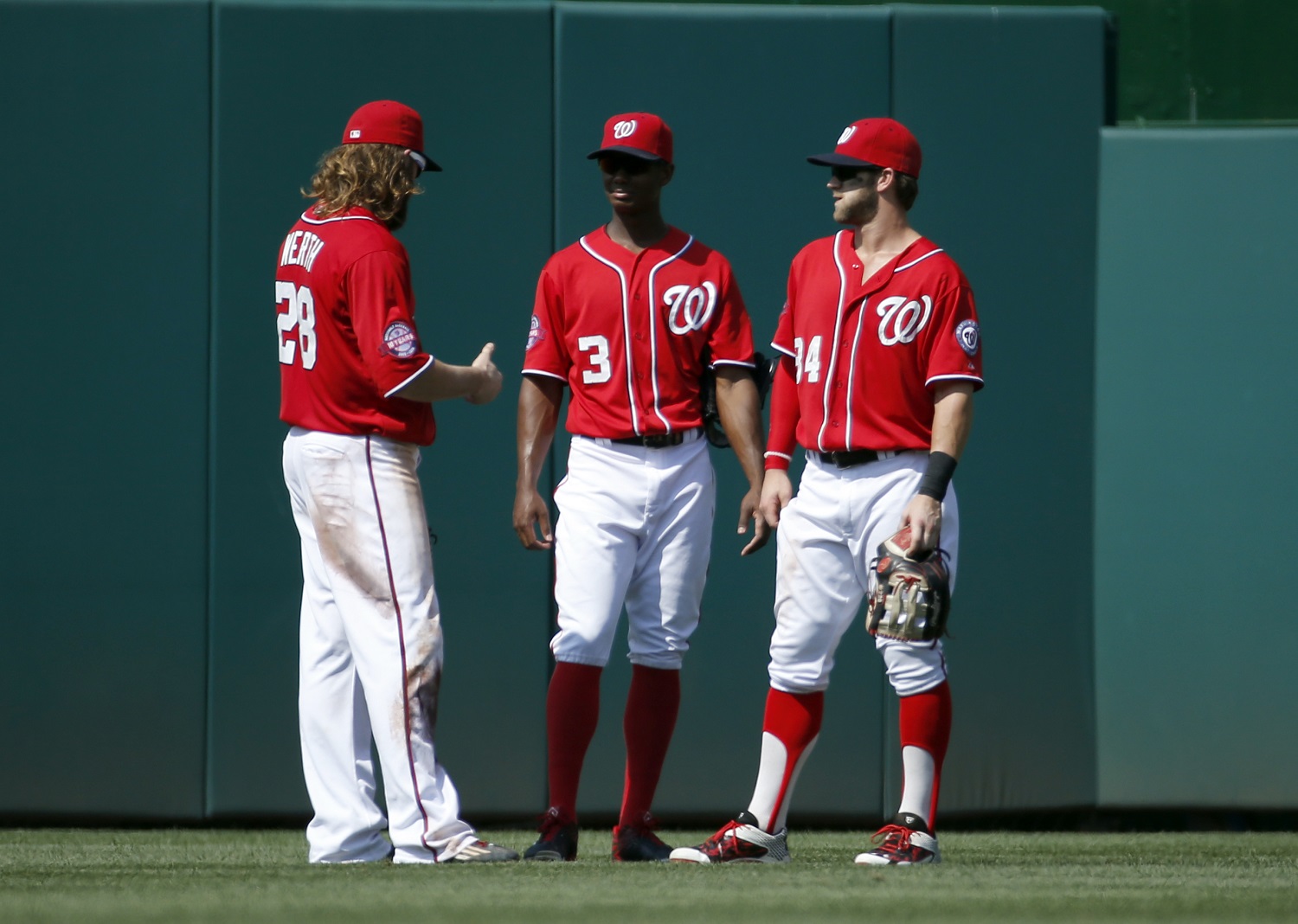WASHINGTON — For the second time in three seasons, the Washington Nationals have a new skipper at the helm. But as Dusty Baker takes over for Matt Williams, what kind of improvement can we expect from the Nats over last year’s disappointing 83-win campaign?
There are certainly many other factors involved in win totals than a simple change in leadership. Often a new manager comes in as part of a larger regime change. That could mean sweeping changes in terms of player personnel, and other, more fundamental alterations in organizational philosophy. Managers are also often fired after seasons in which their teams underperformed compared to their talent level. In fact, that may be the primary reason they are let go. Many of those teams will naturally regress back to the mean the following season.
While there has not been an organizational shift in Washington, Baker had the chance to pick his own coaching staff, so there has been a full overhaul there. And the Nationals — last year’s overwhelming favorite among experts to win the World Series — certainly underperformed their expectations, winning 13 games fewer than they did a year prior. This is to say that a bounce back in performance would not necessarily be attributable directly or in full to Baker, but that an expectation of one is reasonable for many reasons, one of them being a new manager.
In an effort to try to predict how much the team might improve this year under Baker, I went back to look at how each Major League team fared under a new manager since Baker first broke in with the Giants in 1993.
Many managers take over midseason. In these cases, I’ve taken their win total in their first full season over the season they came on board. I also haven’t counted seasons where there were multiple managers as part of a regime change. For any manager that took over in 1994, baseball’s strike-shortened season (such as Dallas Green with the Mets), the win total has been projected over 162 games. Likewise, the shortened season of 1995 has been adjusted by win percentage to fit a 162-game slate.
The Nationals/Expos have averaged better than 10 wins of improvement, most recently getting a 10-win bump in Matt Williams’ first year as skipper. Davey Johnson had an 18-win improvement in his first full season in 2012.
Meanwhile, Dusty Baker-managed teams have averaged nearly 15 more wins in their first season with him at the helm. Of course, it certainly doesn’t hurt that he joined the Giants the same year Barry Bonds did, when San Francisco improved by 31 games from the year prior. Dusty’s Cubs were 11 wins better than they had been in 2002, while his 2008 Reds were two wins better than the year prior.

Overall, teams experienced have better than a four-win bump from the season prior under a new manager since the 1993 season. There have been exactly 151 managerial changes since then (not counting the ones this past offseason), with 91 of them resulting in a positive net gain in wins, just over 60 percent. Of those 91, 52 netted double-digit increases in wins, with 16 representing increases of 20 or more victories.
While it’s true that Baker’s 31-win improvement upon joining the Giants in 1993 is the largest in our sample, it doesn’t appear to be throwing the overall results off in a meaningful way. If we went just two years further back to include the additional 14 managerial changes that lasted a full season in 1991 and 92, we would see they averaged a win increase of 4.07 per season, almost identically in line with the rest of the results.
With Baseball Prospectus projecting the Nationals to be an 87-win team (+4 from last year) and FanGraphs pegging them at 88 wins (+5), the computer models are remarkably in line with what our data reflects. Given both Baker’s and the Nationals’ history (and win projections’ general tendency to be conservative toward .500), perhaps there is reason to hope for better.







